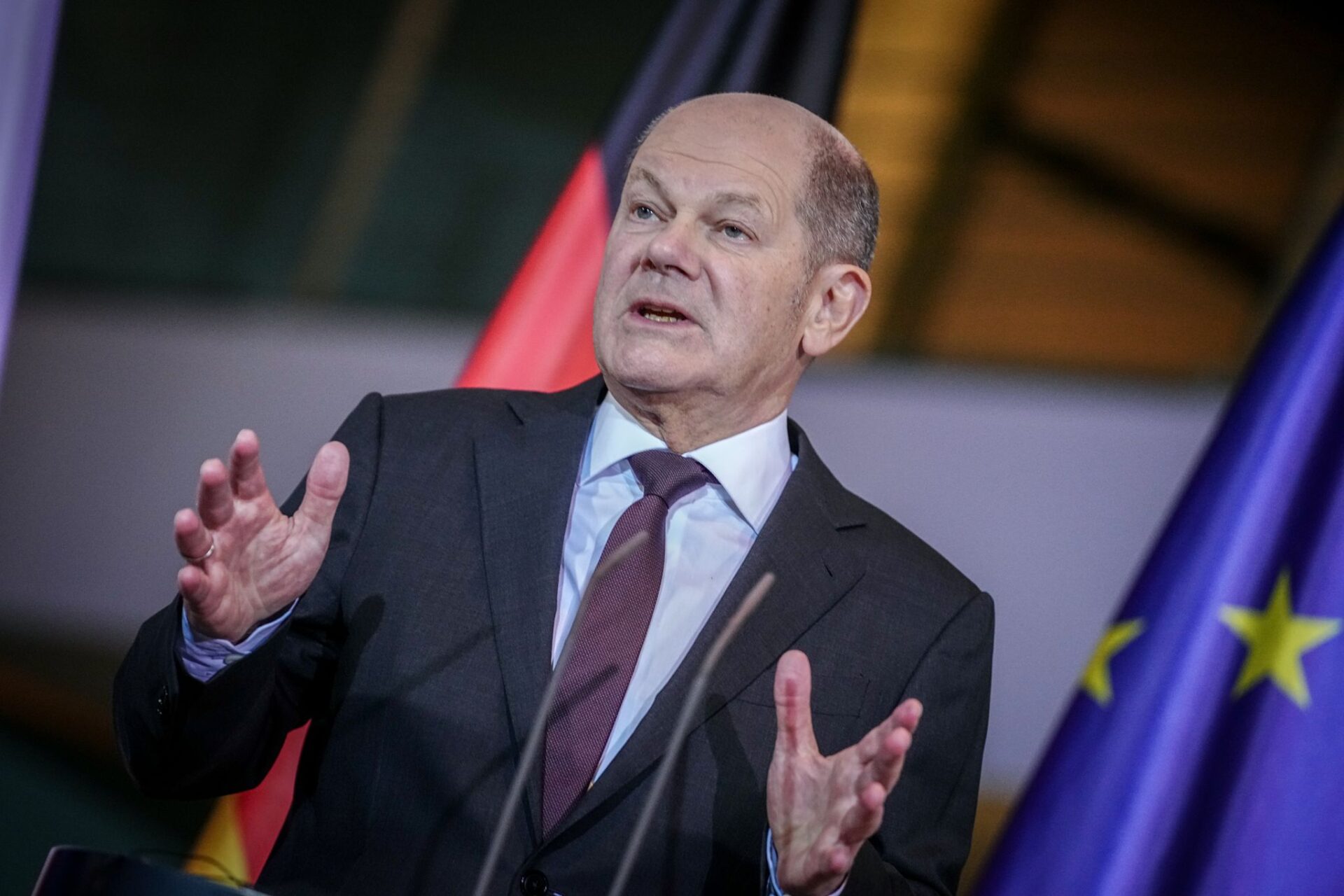Washington – German Chancellor Olaf Scholz justified the planned deployment of US cruise missiles with a range of up to 2500 kilometers with the threat from Russia. “We know that there has been an incredible arms buildup in Russia, with weapons that threaten European territory,” Scholz said on the sidelines of the NATO summit in Washington.
We have been deliberating for a long time on how to respond to this with conventional deterrence in addition to NATO’s nuclear umbrella. The deployment of long-range weapons had already been set in the first National Security Strategy of the Federal Republic a year ago. “That is why the United States’ decision fits exactly into this strategy, which we have been publicly discussing for a long time.”
The US plans to station weapons systems in Germany for the first time since the Cold War, which can reach as far as Russia. This was agreed by the White House and the German government on Wednesday. Moscow is about 1600 kilometers as the crow flies from Berlin. From 2026, Tomahawk cruise missiles, SM-6 anti-aircraft missiles, and newly developed hypersonic weapons are to provide better protection for NATO allies in Europe.
The decision brings back memories of the Cold War. In the early 1980s, Scholz himself protested as a young Social Democrat against NATO’s double-track decision, which included the deployment of Pershing II medium-range missiles that were withdrawn by 1991 after the end of the Cold War.
When asked whether he expected greater resistance to the return of such long-range weapons to Germany, even from within his own party, Scholz said: “This decision has been prepared for a long time and is not a real surprise to anyone involved in security and peace policy.” And it also fits exactly into the federal government’s security strategy, which has been publicly discussed. (July 11)
 go to the original language article
go to the original language article
